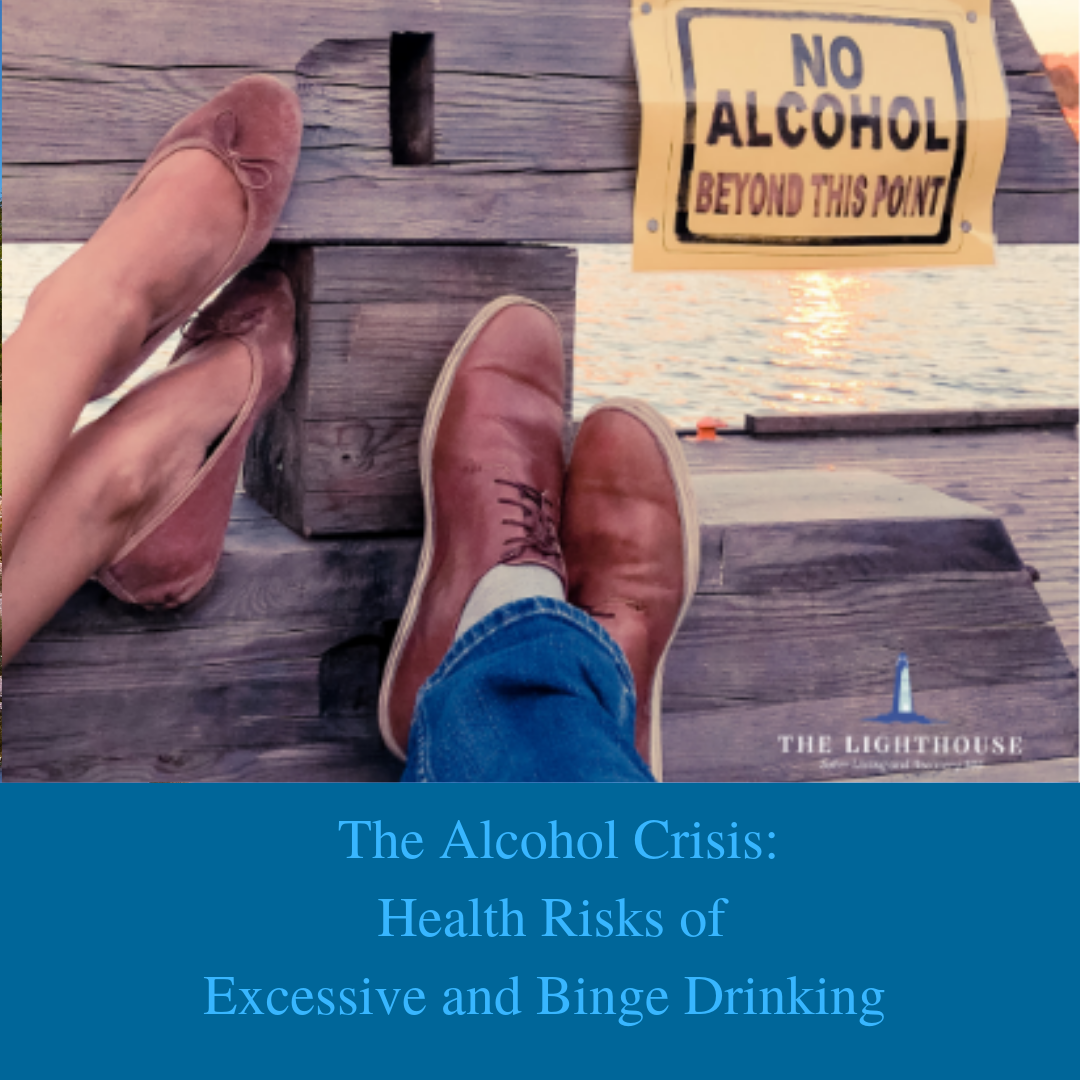The Alcohol Crisis – What You Need to Know: The Health Risks of Excessive and Binge Drinking
Statistics of severe alcohol use disorders continue to increase steadily hidden in the wake of the opioid crisis.
Excessive drinking and binge drinking occur frequently, and both are considered to be at a crisis level in the United States. The number of fatalities and episodes of severe alcohol use disorders steadily increase.
Severe alcohol use has a detrimental effect on public safety. Systems need to be put in place to eradicate the behavior. The impact on innocent lives by the hazards of binge and excessive drinking is severe. The devastation caused in the wake of a night of extreme binge drinking includes financial loss, legal costs, physical, and mental injury, and other fatalities, due to the inability to make proper judgment and control actions.
Understanding the crisis of excessive drinking and binge drinking
The Center for Disease Control (CDC) has maintained a goal of raising public awareness regarding the risks and negative impact of heavy, and binge, drinking. In 2014, the CDC research statistics found that almost 25% of adults over the age of 18 reported binge drinking. Almost 7% percent reported heavy drinking episodes.
What is excessive drinking?
The CDC considers more than 15 drinks per week, heavy drinking for men and 8 drinks per week for women. If you drink close to this amount or more, it is evident that a severe drinking problem exists.
Binge drinking is when you exceed this number of drinks on one occasion. The CDC has determined that consuming 5 or more for males and 4 or more drinks for females, in one sitting, to be a binge-drinking episode. The number of times you do this per year does not change this determination. Therefore, if you do this once a week, once a month, or several times a year on special occasions, you will still be considered to be a binge drinker. When you cannot control the amount of alcohol, you drink in a single session. You are deemed to be a binge drinker.
When you have consumed more alcohol above the legal, or safe, limit you are at risk of accident or injury is possible because your behavior is not safe to yourself and others around you. Too many times, such actions result in devastating damages.
The advertisements and warning for drinking and driving are everywhere, but unfortunately, alcohol distracts rational thinking, causing us to ignore the dangers of drinking and driving.
Harmful Health Effects of Binge Drinking and Excessive Drinking
When it comes to excessive or binge drinking the health risks are high.
Short term risks from excessive or binge drinking are vast and innumerable. These effects have lasting consequences. Heavy, and binge, alcohol drinkers do not reason with clarity, and act impulsively, causing intentional injuries such as suicide, homicide, sexual assault, and domestic violence. Binge drinking often results in alcohol poisoning. At times, this poisoning is fatal. The impulsive behavior that accompanies excessive and binge drinking can create other health risks such as sexually transmitted disease, unintended pregnancy, or fetal alcohol syndrome.
Long-term physical complications related to drinking habits include damage to your heart, cirrhosis, neurological injury, and the worsening of pre-existing conditions such as diabetes.
Other long-term conditions include high blood pressure, heart disease, stroke, liver disease, and digestive problems.
Cancer is common in long-term, excessive, and binge, drinkers, especially cancer of the breast, mouth, throat, esophagus, liver, and colon.
Not only does excessive and binge drinking affect you physically, but it can result in psychological or mental problems. Often heavy drinkers experience difficulties with learning, dementia, and poor performance at school or work due to the inability to recall information. Depression and anxiety are common in binge drinkers, which often result from social problems such as lost productivity, family problems, and unemployment.
Last, but the most significant physical and mental health issue surrounding excessive and binge drinking are alcoholism or alcohol use disorders.
The damage is never minimal and includes the entire community. All of this directly affects the city in the form of economic loss due to additional healthcare costs and financial strain on families.
Research statistic from the CDC further illustrates the magnitude of alcohol-related health risk in the United States.
-
Alcohol related deaths total 2.5 million years of life
-
Almost 46% of deaths from liver disease in 2013 involved alcohol. Another important 48% of all cirrhosis deaths from the period 2006 to 2010 were alcohol-related.
-
In 2014, 31% of the traffic-related death was due to alcohol
-
28 people die every day in car crashes as a result of alcohol-impaired drivers.
-
In 2014, over one million drivers were arrested for driving under the influence of alcohol.
What you can do if excessive or binge drinking is affecting your, or a loved ones, livelihood
Convincing yourself or a loved one to get help for an addiction can be one of the most challenging aspects of recovery. Nonetheless, it is the most crucial step.
Intervention is a critical factor in helping those with this dangerous and deadly problem.
If you or a loved one is concerned about excessive or binge drinking.
The Lighthouse Sober Living Recovery 365
Call Trey Laird 203-400-8065



